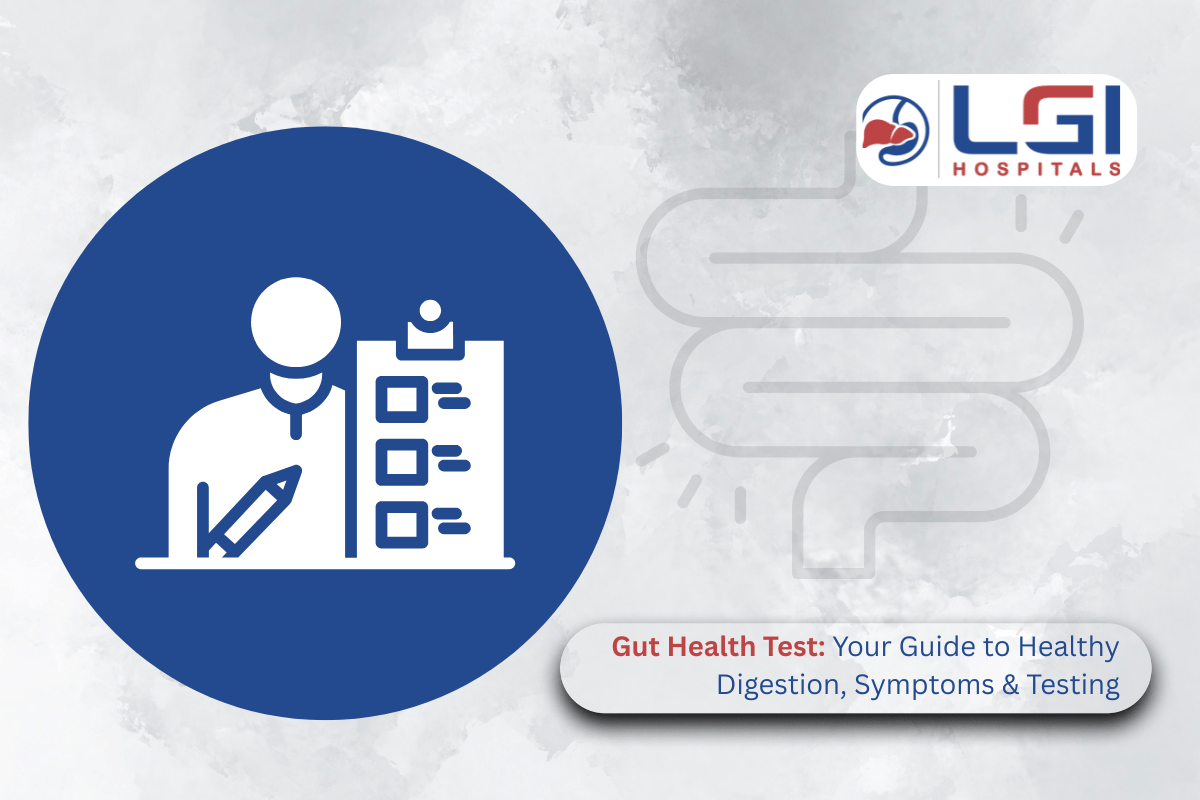A gut health test is one of the best ways to understand your digestive system and overall well-being. Today, people across India—from Mumbai to Hyderabad—are searching for ways to maintain gut health, spot bad gut symptoms, and explore advanced gut microbiome testing. Knowing how your gut works, the types of tests available, and clear steps for restoration puts you in control of your health journey.
How to Maintain Gut Health
Good gut health starts with everyday choices:
- Eat a variety of fiber-rich foods (fruits, vegetables, whole grains).
- Include fermented foods (curd, yogurt, kimchi, idli, dosa) for natural probiotics.
- Drink plenty of water.
- Get regular physical activity.
- Limit processed foods, sugar, and unnecessary antibiotics.
- Manage stress, as high stress disrupts healthy gut bacteria.
Symptoms of Bad Gut Health
Recognizing trouble early helps with faster recovery. Watch for:
- Frequent bloating, flatulence, or abdominal discomfort
- Irregular or painful bowel movements (constipation, diarrhea)
- Unexplained fatigue and low energy
- Skin flare-ups like acne or eczema
- Sudden food sensitivities or allergies
- Mental fog, mood changes, or sleep disturbances
If these symptoms persist, a gut health test can reveal the underlying microbiome imbalances.
Gut Microbiome Testing
Gut microbiome testing analyzes the balance of bacteria and other microorganisms in your digestive tract.
These tests help you:
- Detect harmful versus beneficial bacteria
- Identify inflammation or infection
- Enable a personalized nutrition plan based on your results
Testing can be done at accredited labs, hospitals, or with home kits—making results accessible and patient-friendly.
How to Restore Gut Health
Once you know your gut status from testing, focus on:
- Eating more fiber and plant-based foods
- Adding probiotics (yogurt, kefir, supplements)
- Reducing intake of junk food and processed meals
- Staying hydrated
- Sleeping at least 7-8 hours a night
- Consulting your healthcare provider for tailored advice
Simple habits combined with professional guidance lead to lasting gut restoration.
Types of Gut Health & Bacteria Tests
There are several options available, including:
- Comprehensive Gut Microbiome Panels: Analyze hundreds of microbial species.
- Basic Bacteria Balance Tests: Look at major gut bacteria and overall diversity.
- Inflammation & Infection Markers: Spot potential trouble sources in your digestive tract.
- At-Home Gut Health Kits: Convenient for privacy and ongoing monitoring.
- Functional Gut Assessments: Combine lab results with symptoms to suggest next steps.
Ask your provider which gut health test fits your symptoms and wellness goals.
Wrapping Up
Maintaining good gut health means more than eating well—it requires understanding your symptoms, testing your microbiome, and restoring balance with smart lifestyle changes. For anyone seeking expert care and actionable results, LGI Hospitals is the right place to get your gut checked—trusted by many for comprehensive gut health solutions.
FAQ
Q: How many types of gut health tests are there?
A: Options include gut microbiome panels, basic bacteria tests, inflammation markers, and home-based kits—each suited to different needs and symptoms.
Q: How can I test my gut health?
A: Hospitals, labs, and certified home test kits offer simple sample collection and scientific reports. Choose the test based on your location and personal preference.
Q: How do I check if my gut health is good?
A: Healthy gut signs: regular digestion, energy, clear skin, and no discomfort. Testing provides a clear picture of your microbiome balance for deeper assurance.
Q: What are the symptoms of poor gut health?
A: Common symptoms are bloating, irregular bowel movements, skin issues, fatigue, and mental fog.
Q: How do I restore my gut health after bad results?
A: Boost fiber and natural probiotics, reduce junk food, hydrate, sleep well, and follow professional dietary guidance.
Get started now—your gut, your health, your future!
LGI Hospitals is here to help you achieve the best digestive wellness.

